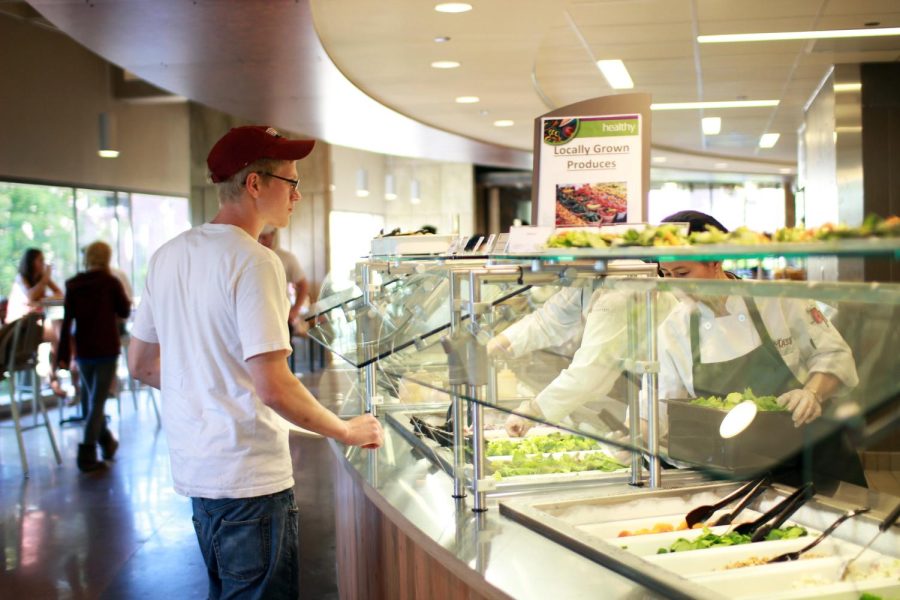“The UMASS Student Food Pantry offers free non-perishable food to all students, located in Bartlett 317c.” reads the University of Massachusetts’ dining website. And yet, no such pantry exists – at least not if the current administration has its say.
The pantry existed before the COVID-19 pandemic, run chiefly by the service fraternity Alpha Phi Omega (APO) and by members of the Student Government Association and the Graduate Student Senate. Once the pandemic started, the pantry, along with the rest of campus, had to be shut down. Fair enough, but it’s been nearly two years. Why hasn’t the pantry reopened?
In the interim of COVID, the administration seized the space for themselves. What precisely they intend to do with the space is unknown, despite the best efforts of many. APO President Grace Cippollone and Collegian staff writer Olivia Capriotti raised similar questions with multiple offices at UMass and received less than satisfactory answers.
Shady bureaucratic practices aside, the larger issue is also concerning. There exists a gaping hole in UMass’ food insecurity resource network, one that it seemingly isn’t making an effort to paper over. The fact it has still not found the time to remove the pantry from its website shows how little attention administrators are paying to the subject.
This is all happening with a specific backdrop; the cost of meal plans at UMass continue to rise, along with a similar increase in the administration’s budget. Yet, there is no increase in either the quantity or the quality of resources that are being offered to students.
According to the 2015 Student Life Survey, nearly a quarter of students skip meals due to cost and worry about the price of meals. In the eight years since then, the costs of meals and attending UMass have increased exponentially. Food insecurity as an issue at UMass has only gotten worse, and a food pantry is a perfectly workable solution (and historically effective; we had one a little less than 50 years ago), but the administration seems unconcerned.
Food pantries at universities are far from new, they’re present at colleges smaller and much less funded than UMass. Bunker Hill Community College in Boston, a school with roughly 8,000 undergraduates, operates the DISH Pantry (Deliver Information, Sustenance, Health). BHCC actually increased funding to the pantry after the pandemic in order to further shore up its efforts against food insecurity.
The argument may be made that any student at UMass has access to the Amherst Survival Center’s food pantry, and that having one on campus is therefore not necessary. This is an argument that can only be made if one is entirely unaware of how inaccessible such a location is to someone without a vehicle of their own. Sure, taking the bus is possible, but if the goal is to make nutritious food readily and easily accessible to those who need it the most, a suggestion to “just take the bus” cannot really be made in good faith.
A pattern seems to be emerging at UMass: under the guise of COVID-19, the administration takes certain luxuries for itself and takes away certain others from the student body. The 24-hour library, U-Pub and now the Bartlett Food Pantry have all been victim to this expansionary tendency of the UMass administration.
The University is quite fond of patting itself on the back for their status as No. 1 Dining in the country. It should be; the food is really quite a step up compared to what most schools offer. It really is No. 1 Dining, just not for all of us. For those of us who can’t access this ‘No. 1 Dining,’ UMass’ response is silence.
If you would like to have a better response than UMass, you can go here to sign the petition to reopen the pantry.
Manas Pandit can be reached at [email protected].




















